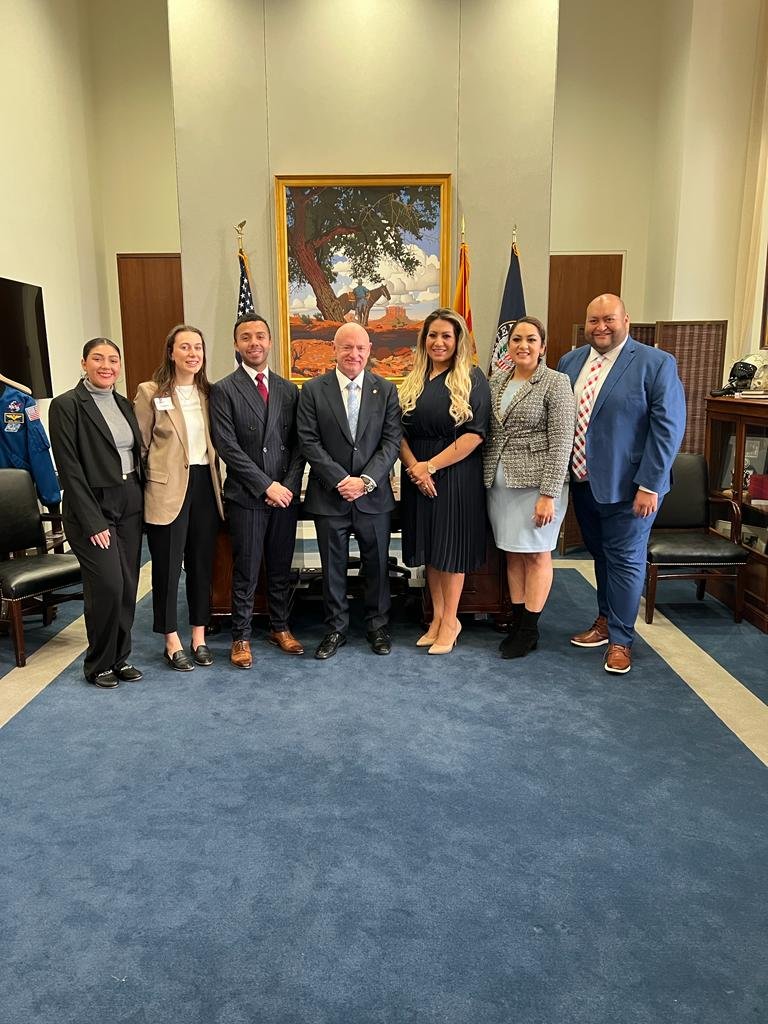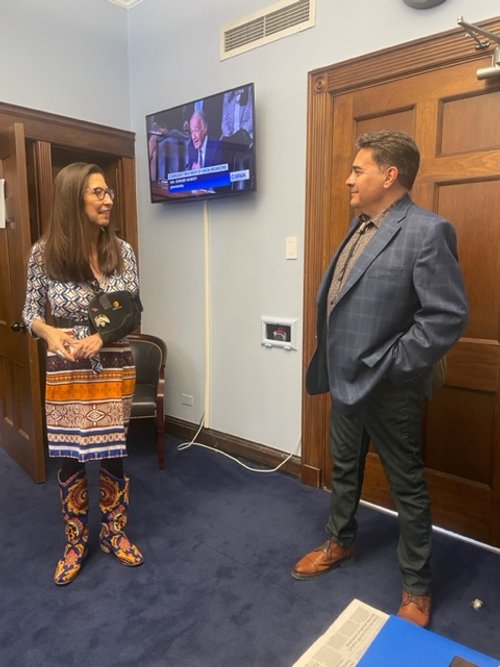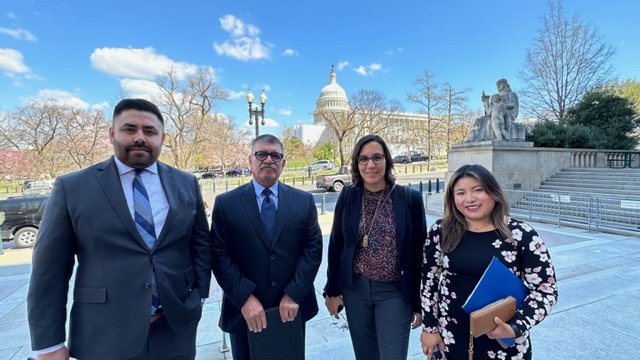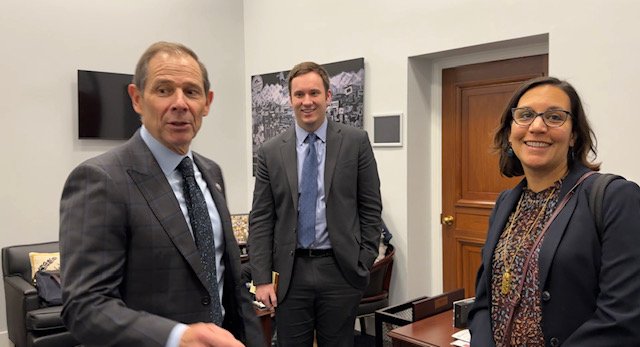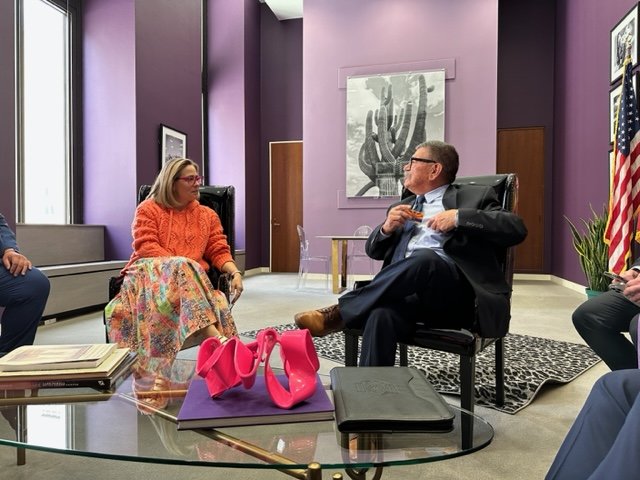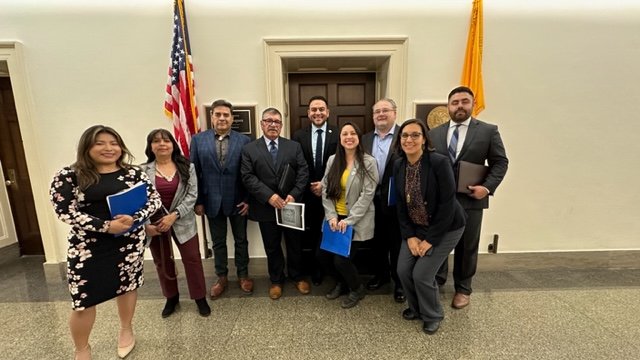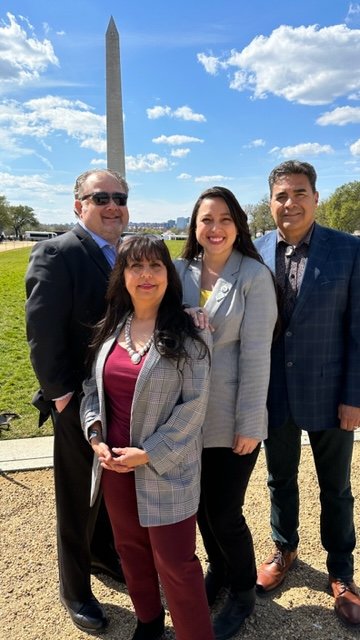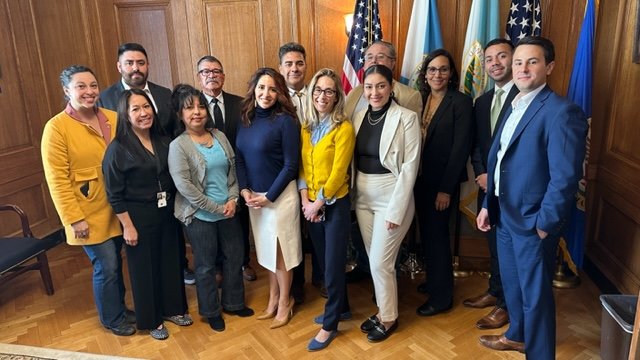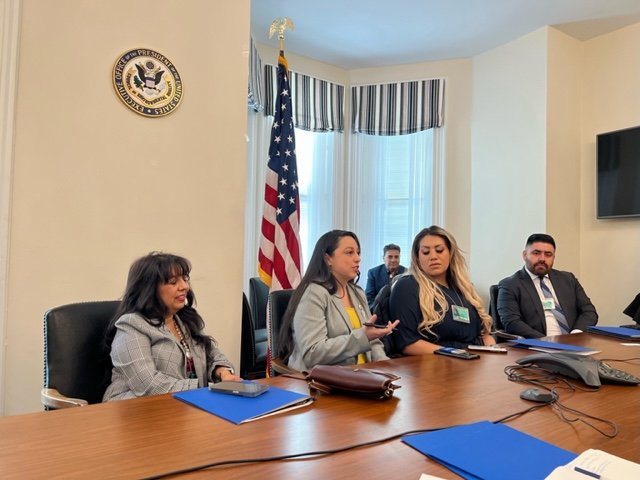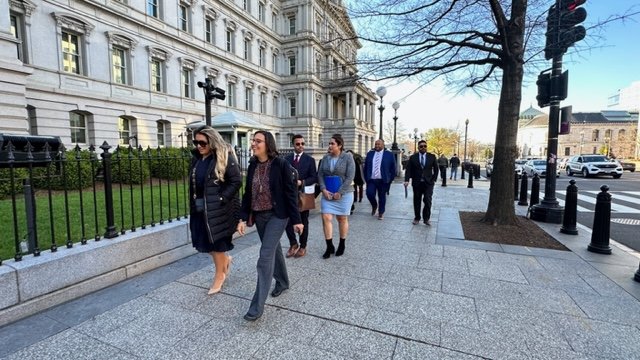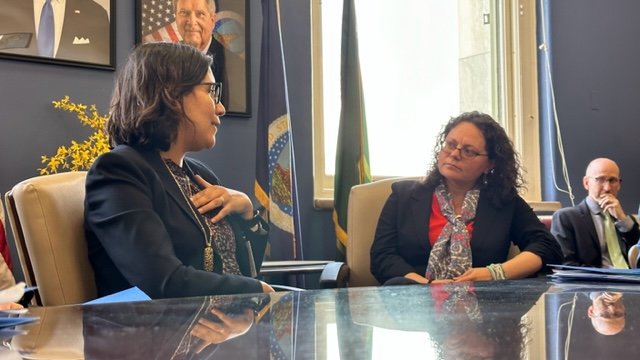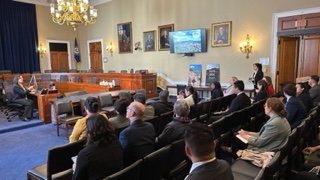HECHO’s 2023 Advocacy Trip
Six months after HECHO’s successful first advocacy trip to Washington D.C., more Hispanic Conservation Leadership Council (HCLC) members from Arizona and New Mexico were brought to the nation’s capital for our second fly-in to speak on behalf of their communities about critical issues impacting their land, water, and sites of tremendous cultural, historical and ecological value that are being threatened by mining, vandalism and mismanagement.
"It has been a privilege and very meaningful to be side by side with other elected officials from home and Arizona and meet with the highest federal decision-makers to talk about our public lands and water. This experience has given us a sense of cohesion, camaraderie, and shared power that what we care about is important," said Councilwoman Corilia Ortega from the Town of Taos, New Mexico.
HECHO’s Hispanic Conservation Leadership Council currently has more than 70 members in Arizona, New Mexico, Nevada, and Colorado. This fast-growing network of Hispanic elected officials and community leaders keeps making a tremendous impact at the local, state, and federal level while uniting a collective Hispanic voice on conservation.
This advocacy trip was an example of that.
Hispanic leaders from Arizona and New Mexico came to the most powerful tables in the United States at a critical time to advocate for the protection of Oak Flat and the Grand Canyon watershed in Arizona, and Caja del Río, in New Mexico.
“The Grand Canyon is at risk, and so is the Colorado River. Uranium mining is a threat to both. There is a temporary mining ban that expires in 2032. All Arizonans should be very concerned about this. We must do everything to protect it permanently,” said Adriana García, a HCLC member Arizona, who supports a permanent mining ban on the 1,006,545 acres of public land around the Grand Canyon to safeguard the Grand Canyon Watershed and preserve the pristine natural wonder which supports over 12,000 jobs and produces over $1.2 billion annually to local economies.
"We have seen the petroglyphs vandalized and destroyed. You cannot take that back once it is damaged. It is a living cultural land," said Taos County Commissioner Darlene Vigil, a HCLC member from New Mexico, about the Caja del Río Plateau, one of New Mexico's most ecologically rich and culturally significant landscapes, encompassing approximately 107,000 acres of land.
This visit to Washington, D.C., coincided with a crucial moment for the future of Oak Flat, a sacred land located at the Tonto National Forest only 60 miles east of Phoenix.
The day the HCLC members arrived in the nation's capital, the San Carlos Apache Tribe confirmed rumors that the U.S. Forest Service plans to publish the Environmental Impact Statement (EIS) this spring, triggering a 60-day period in which the government must transfer the land –that includes Oak Flat- to Resolution Copper, a foreign mining company jointly owned by BHP and Rio Tinto.
The sudden news created a stronger sense of urgency and responsibility among HCLC members to raise and unite their voices in back-to-back meetings to prevent this foreign mining company from collapsing Oak Flat into a 1.8-mile-long, 1,000-foot-deep crater, and depleting 250 billion gallons of water from the limited and precious water resources in Arizona, already suffering from exceptional drought.
"I was born and raised in Superior, Arizona. I have 25 years of experience in mining. Mining is in my blood, but this mine will destroy the surface and groundwater my community depends on. I am happy to be here to explain to our leaders in D.C. what block cave mining (the method Resolution Copper plans to use at Oak Flat) is and bring awareness of the tremendous environmental damage as well as how these two foreign mining companies will be exploiting our natural resources on the expense of Americans," said Henry Muñoz, a retired miner and HCLC member from Arizona.
Our leaders of both states advocated to have the Environmental Impact Statement process started over to adequately convey the impacts on water, the environment, and communities, which are issues that have not been adequately addressed in the EIS.
"We stand by our brothers and sisters in Arizona regarding saving Oak Flat," said Carmichael Dominguez, former Santa Fe City Council member and HCLC member from New Mexico.
HECHO's delegation from New Mexico and Arizona met with Biden Administration appointees and leaders from the U.S. Department of the Interior and the U.S. Department of Agriculture, as well as Members of Congress and staff from across the political spectrum, including Senator Mark Kelly (D-AZ), Senator Kyrsten Sinema (I-AZ), Rep. Juan Ciscomani (R-AZ), and Rep. Paul Gosar (R-AZ), Rep. Eli Crane (R-AZ), Senator Ben Ray Luján (D-NM), Rep. Teresa Leger Fernández (D-NM), Rep. Gabe Vasquez (D-NM), Rep. Melanie Stansbury (D-NM), Rep. John Curtis (R-UT) and Rep. Raja Krishnamoorthi (D-IL).
“To be here with and hear from other Hispanic leaders who care about conservation and the issues in their states has been very eye-opening. Meeting with congressional offices is important so they can hear how the decisions they make here impact local communities,” said García.
"HECHO has given us a platform to speak out on behalf of our communities here at the highest level of power. I am grateful for this opportunity to have my voice and the voices of my people heard and help these important federal decision-makers understand what is at stake so they make the right decisions that benefit our people and our environment," said Muñoz.
With these advocacy trips and other many other efforts, HECHO is committed to elevating Hispanic leaders' voices in conservation and providing them an opportunity to be part of the decision-making process that impacts their communities.

